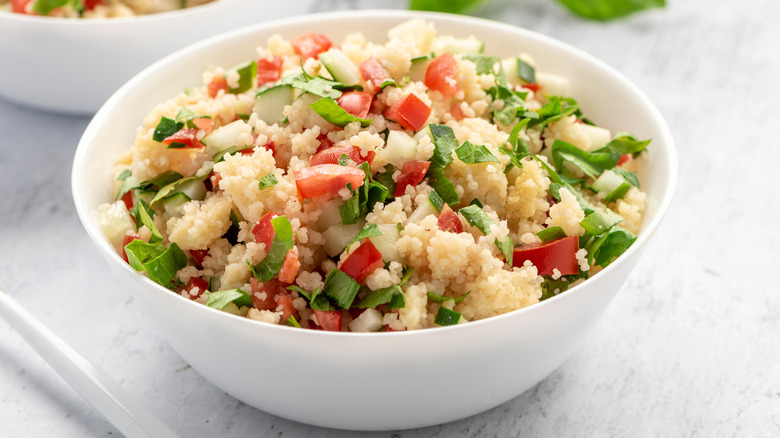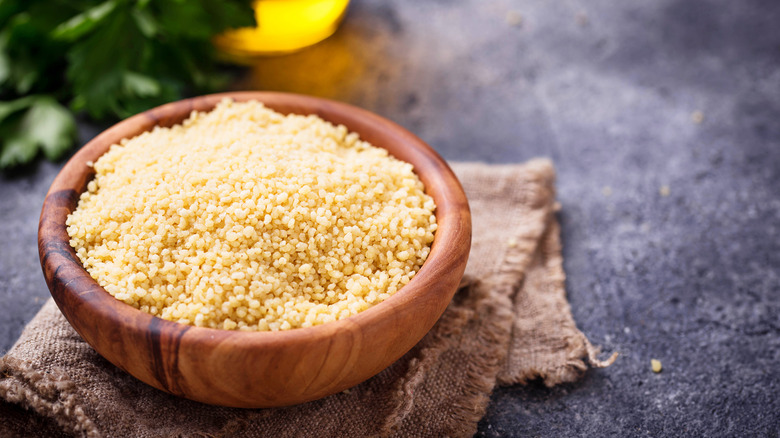How Healthy Is Couscous?
Looking to switch up your diet with a new grain option? Couscous, made from durum wheat semolina flour, is a versatile choice as a side dish, main course, or salad ingredient (via EatingWell). But how does this grain match up nutritionally against its counterparts?
Couscous is actually a type of pasta, but it doesn't have the typical texture and flavor you're used to. It comes in varieties called Israeli (aka pearl), Lebanese, or Morrocan — all made the same way but in different shapes and sizes. What once was typically used in North African or Middle Eastern cuisines now has crossed over to tons of dishes across the globe.
Couscous packs a punch of fiber, carbs, protein, and some important minerals. One serving of cooked couscous contains 217 calories, only 0.5 grams of fat, 45 grams of carbohydrates, 3 grams of fiber, 7 grams of protein, and no sugar (via EatingWell). It also includes a whopping 78% of your daily value of selenium, a mineral that helps with reproduction and thyroid hormone metabolism, as well as has antioxidant properties, per Healthline. However, you should be aware of some nutritional negatives of couscous.
Is couscous right for you?
While selenium has been linked to decreasing the risk for certain cancers, as well as lowering the risk for heart disease, and serving as an immune system booster, according to Healthline, couscous may not be a good fit for everyone. It is considered a "high-gluten" product, which means you'll want to skip it if you have a gluten intolerance or allergy.
Couscous also contains higher carbohydrate levels, meaning people with diabetes or blood sugar issues should exercise caution to avoid spiking their blood sugar. "It also packs fewer nutrients than similar whole grains," Healthline confirmed. However, pairing couscous with protein or fiber-rich ingredients can battle the blood sugar spike and ensures you get a well-rounded meal full of nutrients.
Experts say opting for the whole grain version of couscous is the best way to gain all the nutritional benefits and boosting the protein and fiber per cup. And of course, you should consult with a registered nutritionist if you have any questions or concerns about including couscous in your dietary plan.


